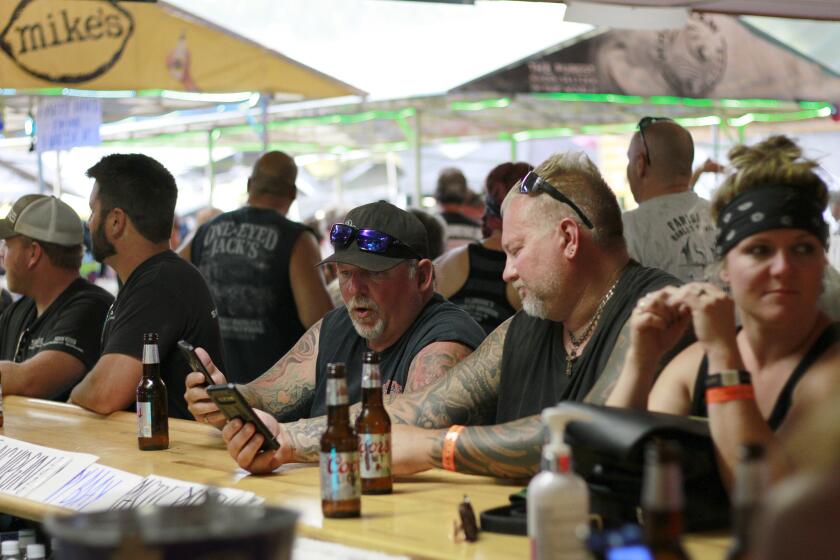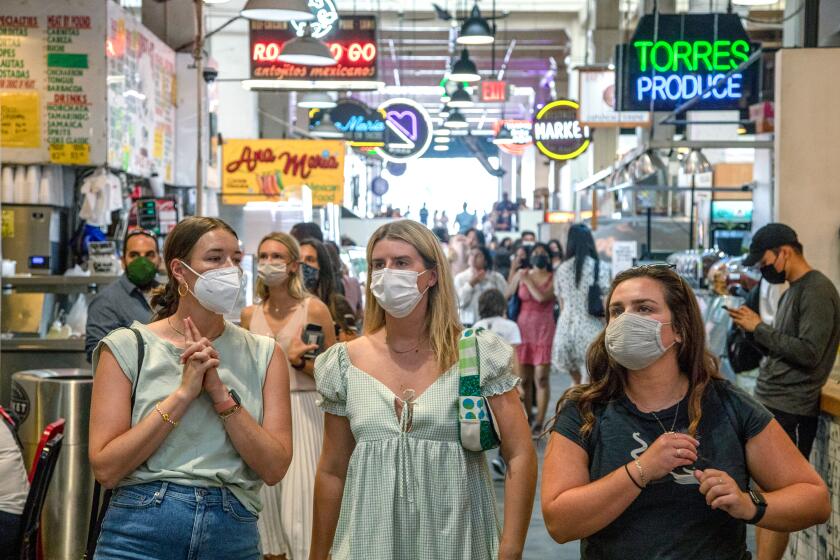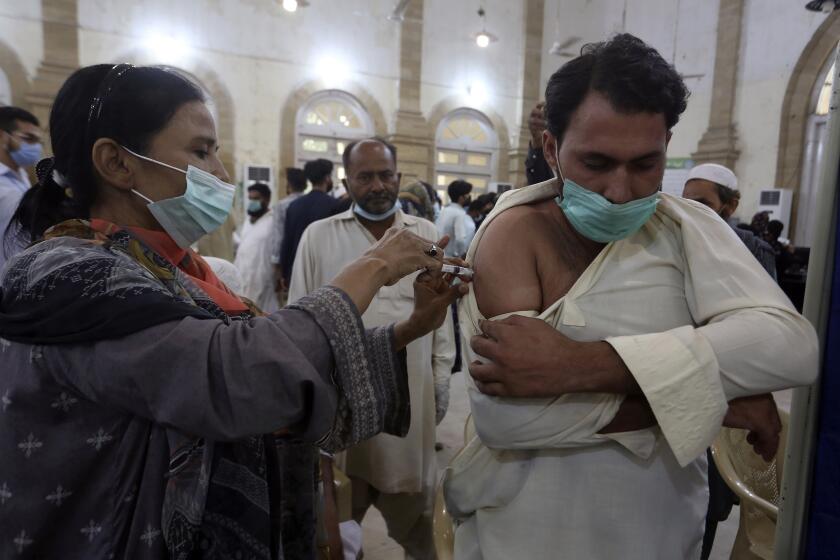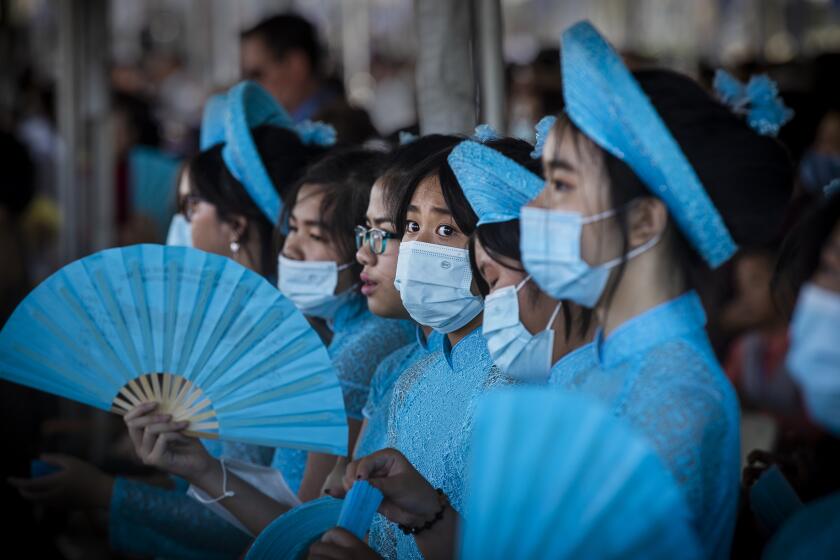With Delta surging, America is dangerously divided over vaccines
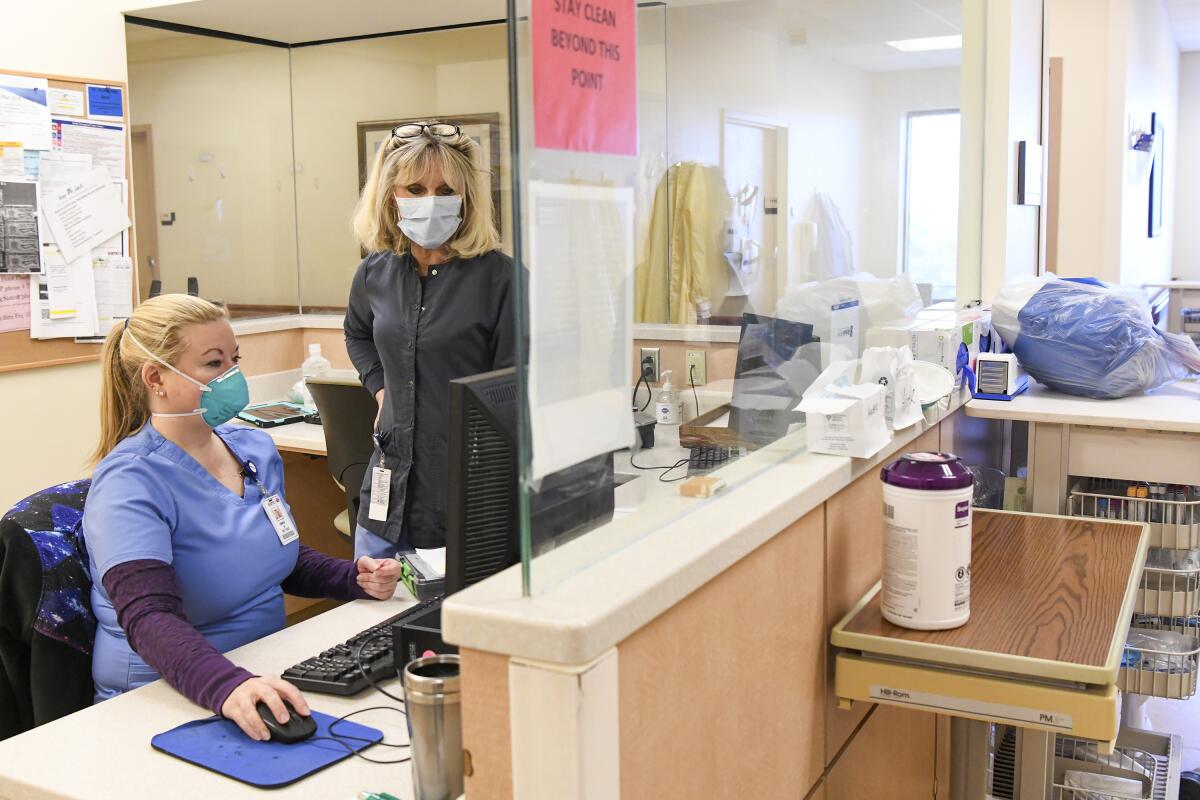
- Share via
HEFLIN, Ala. — Peyton Thetford straddles two Americas.
Inside the intensive care unit at the University of Alabama at Birmingham Hospital, the 27-year-old nurse has witnessed a dramatic uptick in new COVID-19 patients struggling to breathe. But after grueling 12-hour shifts — moving patients from their backs to their stomachs and then turning them onto their sides every two hours to keep their oxygen levels up — he leaves the hospital and sees hardly anyone wearing masks or practicing social distancing.
“It’s kind of like the movie ‘Groundhog Day,’ where you wake up and everything’s the exact same and you can’t do anything to change it,” he said. “You’re just coming to work and watching people die.”
As the U.S. reached the milestone this week of getting at least one dose of a vaccine into the arms of 70% of the adults in the country, few people were celebrating. The highly contagious Delta variant of the coronavirus was surging across the U.S., and there was growing exasperation that the national project to stem the spread of the coronavirus had stalled as it met resistance to vaccinations in large sections of the conservative South and Midwest.
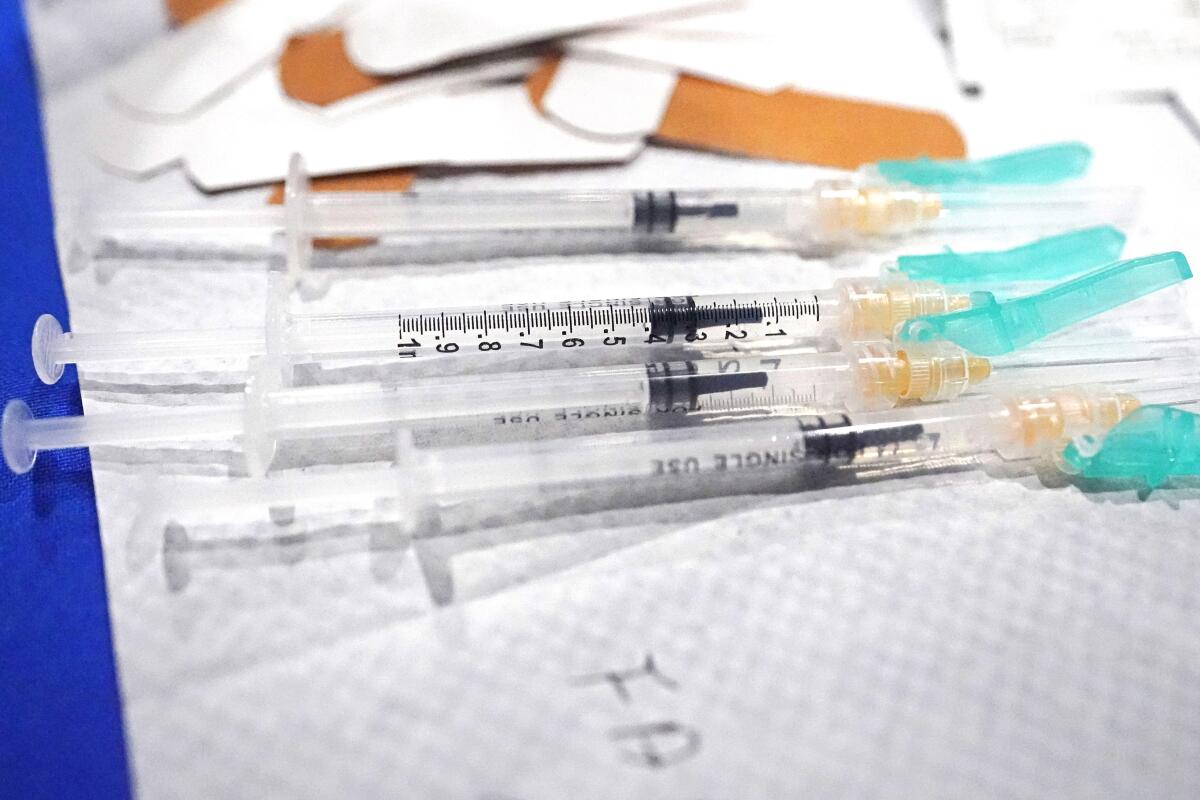
The split between those who have received their COVID-19 shots and those who refuse to be vaccinated follows familiar geographical and political fault lines. Democratic-leaning states in the Northeast, such as Vermont and Massachusetts, lead the way in vaccinations while staunchly Republican states that voted for former President Trump in 2020, including Alabama and Mississippi, have the lowest vaccination rates and the steepest increase in cases and hospitalizations.
Ever since the health crisis began in the United States, the coronavirus, in all its forms and variants, has magnified the nation’s political differences. Americans have disagreed on wearing masks, government lockdowns, and even the seriousness of a virus that’s killed nearly 615,000 people in the U.S.
“This is the most politicized I’ve ever seen America — and the tragedy is that it’s politicized over a life-and-death issue,” said Frank Luntz, a Republican pollster advising the Biden administration COVID-19 task force about how to reach people reluctant to get the vaccine.
As Delta has caused a rash of cases and COVID-19 hospitalizations across the U.S., the highest number of cases and the most severe outcomes are happening in areas with low vaccination rates, according to the Centers for Disease Control and Prevention. But the pace of vaccinations also has risen over the last few weeks, particularly in Southern states with strong hesitancy against getting the shot.
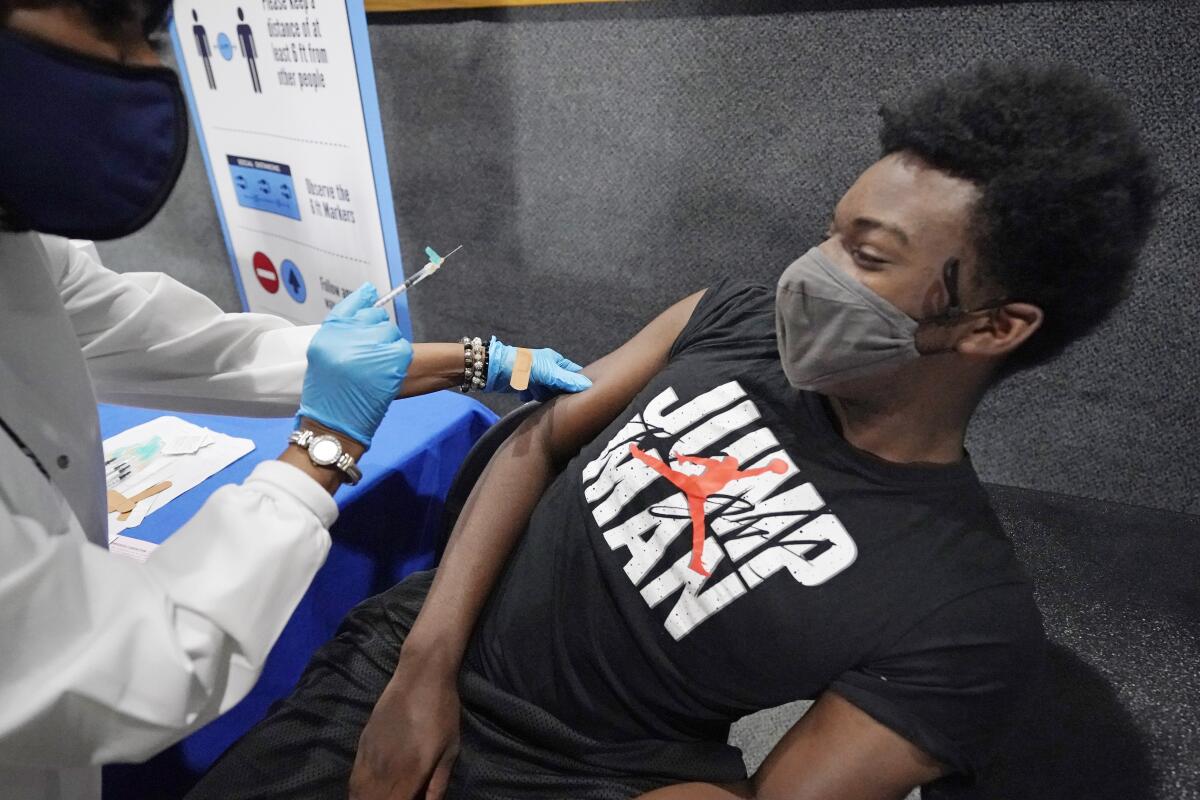
Still, Alabama lags behind all other states with just 40% of residents over the age of 12 fully vaccinated — compared with Vermont, which has fully inoculated nearly 77%. The number of COVID-19 patients in Alabama hospitals has climbed in the last month from about 247 to 2,134. If the current rate of increase continues, the president of the Alabama Hospital Assn. has warned that within another month hospitals in the state could exceed the January peak of 3,089 patients.
Crowds of bikers are rumbling toward South Dakota for the rally, raising fears of another spate of COVID-19 infections stemming from the gathering.
But many Alabama residents seem more worried about the vaccine than the virus.
“I don’t want to be a guinea pig,” said Renee Dunn, 43, in a recent interview. Dunn is a manager at Jack’s fast-food restaurant in Heflin, a tiny east Alabama town that is the county seat of Cleburne County, a rural area that has one of Alabama’s lowest vaccination rates. According to the Alabama Department of Public Health, one in four residents over the age of 12 in Cleburne County have been fully vaccinated.
Dunn worried the vaccines were manufactured too quickly. Her mother had a bad reaction to a vaccine this year and suffered from sore joints, fever and confusion, she said, and her son felt so sick he missed a few days of work after taking his first shot. Serious side effects are rare.
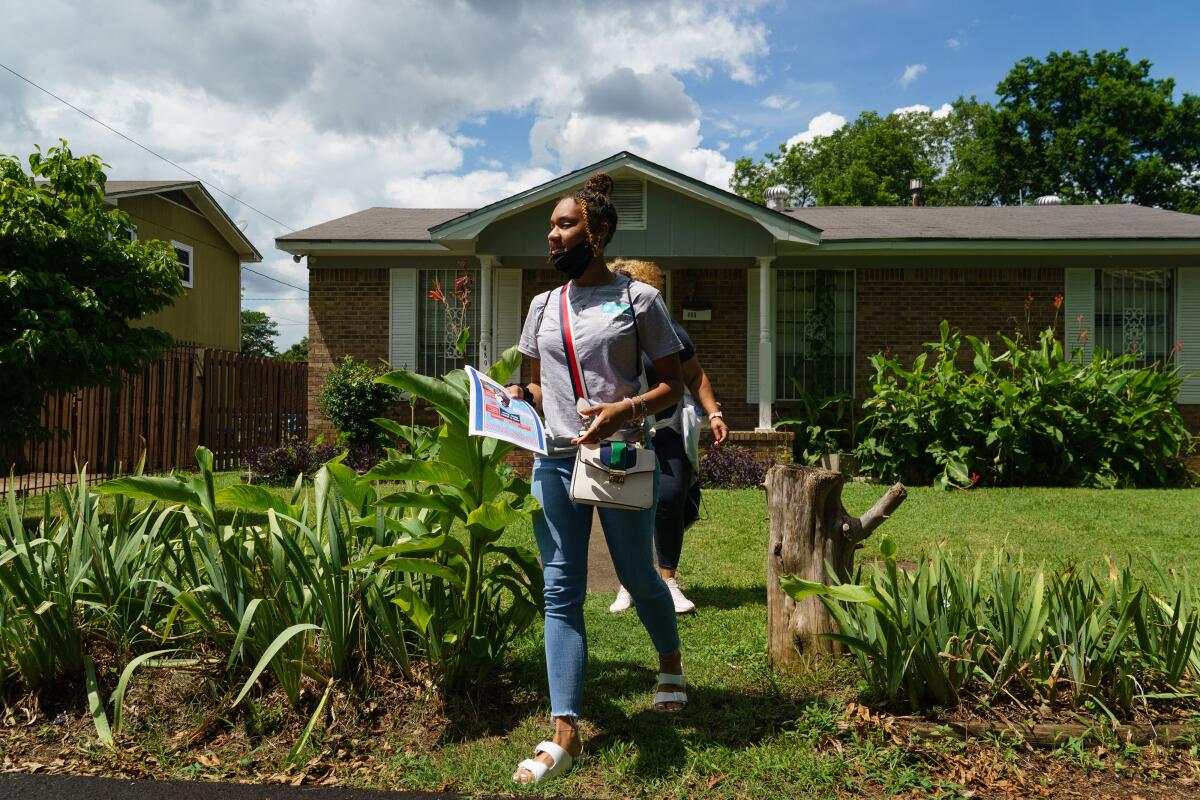
Dunn suffers from Crohn’s disease and arthritis — conditions that made her vulnerable — and had COVID-19 in December. She didn’t know last week if she still had antibodies that would protect her from future variants and had not sought her doctor’s advice about vaccines.
Politics, she said, had nothing to do with her reluctance. She did not vote in 2020. But she said one factor that might change her mind: FDA approval of a vaccine.
Other residents of this staunchly conservative Alabama county, where nearly nine in 10 voters cast ballots for Trump in 2020, were more resistant.
Ryan Jackson, a pharmacist who manages Wright Drug Co. in Heflin, said he had heard every reason not to get a shot: fear that the vaccines could lead to side effects such as infertility, belief that the risks of COVID-19 have been exaggerated, outlandish theories about the vaccines containing microchips for government tracking. Some of the biggest pushback has come from those who don’t trust the government.
“You hear the conspiracy theories; they don’t trust the government, a lot of political factors,” said Jackson, who is vaccinated. “It’s just a complete distrust of everybody in authority.”
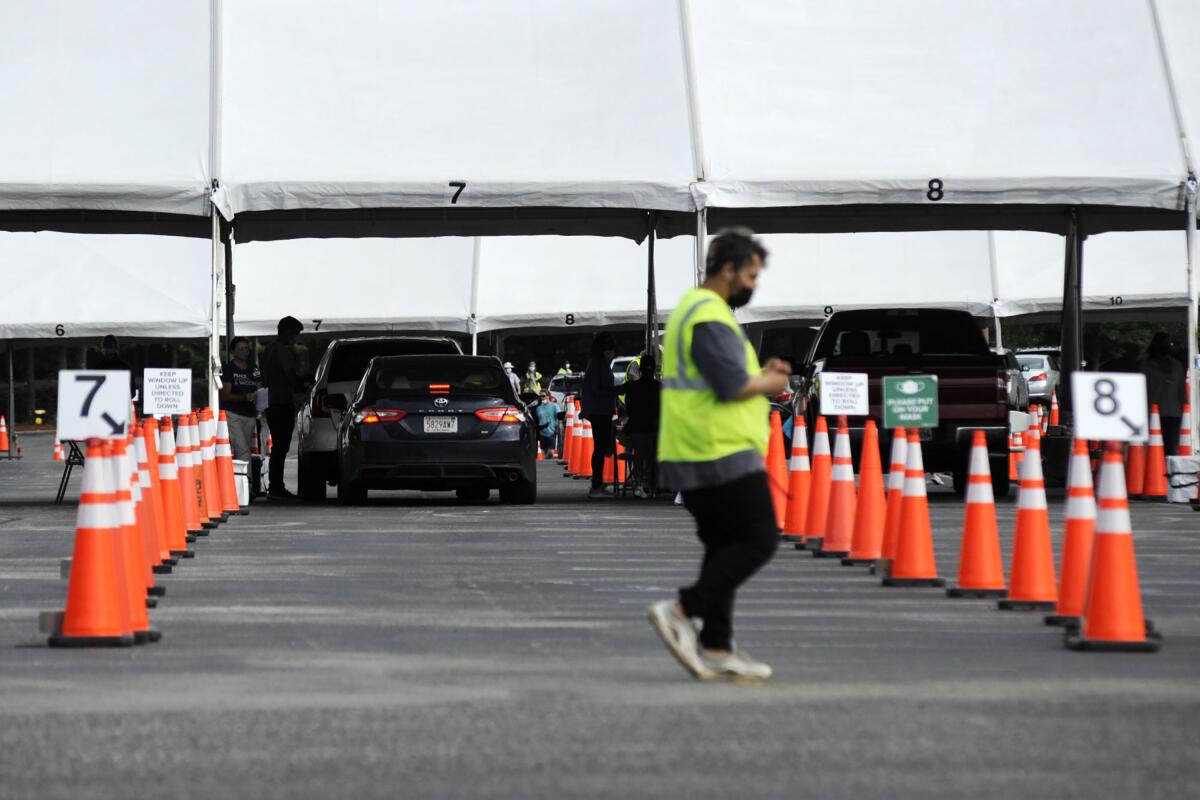
As someone who knows most people in his small town — and has a pretty good idea of who has been vaccinated and who hasn’t — Jackson said he tended not to push back on conspiracy theories. Instead, he focused on people with legitimate questions, providing information about side effects and emphasizing that a vaccine decreased their chance of being hospitalized or dying from COVID-19.
A Republican, he dismissed the idea that the vaccine divide came down to partisan politics.
The L.A. City Council will consider requiring that people show their vaccination status to visit indoor places such as restaurants, stores and gyms.
“I’m about as conservative as you can get, and I’m about as pro-vax as you can be,” he said, noting that all of his family, most of his friends and about 80% to 90% of fellow congregants at his church were vaccinated.
But surveys from the Kaiser Family Foundation indicate the partisan gap on vaccinations is widening. In April, the average vaccination rate in counties that voted for Trump was 20.6% compared with 22.8% in Biden counties. By July 6, that gap had increased to 11.7%.
Not all Republicans are on the same page. Some GOP lawmakers and public officials have derided public health officials such as Dr. Anthony S. Fauci, the nation’s top infectious diseases expert, and promote misinformation, falsely accusing the Biden administration of trying to inoculate Americans against their will, while many establishment Republican figures have promoted vaccines.
Republican Senate Minority Leader Mitch McConnell of Kentucky has urged Americans to get vaccinated, saying last month: “It’s not complicated.”
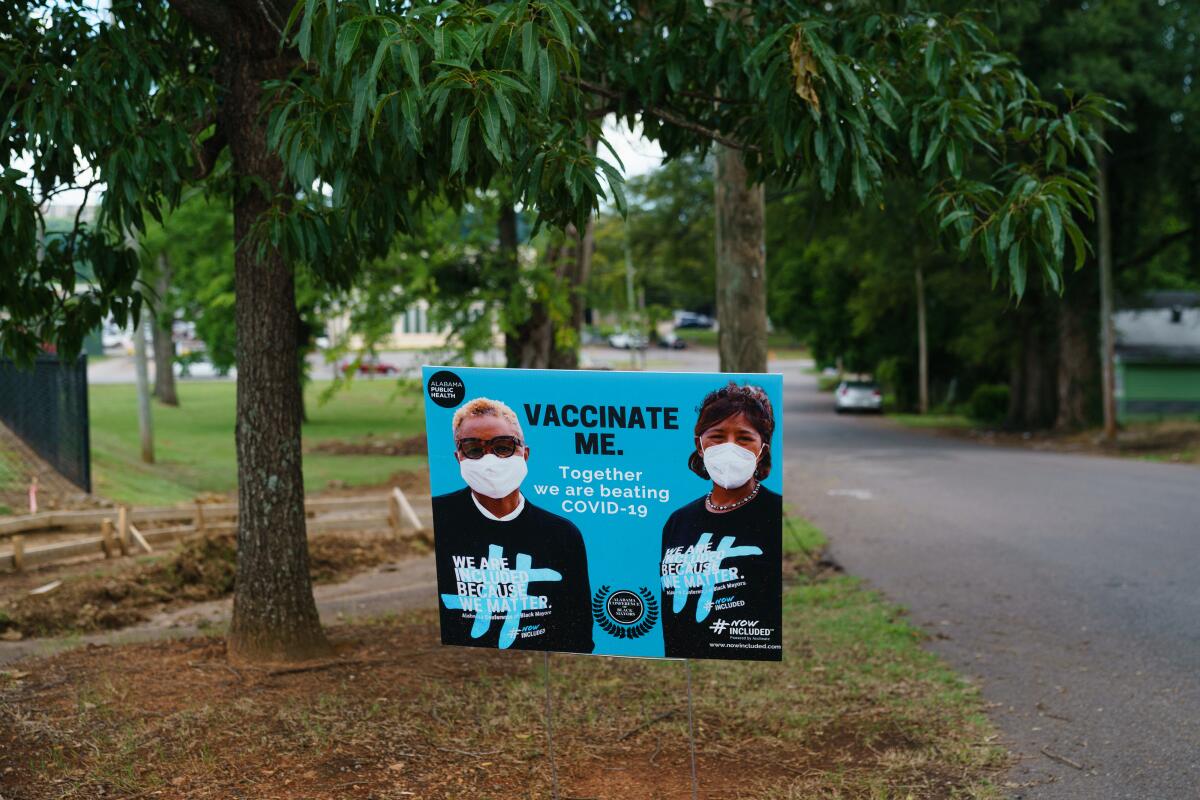
Even in Alabama, where most people remain unvaccinated, Republican Gov. Kay Ivey has said it is time for the vaccinated to push back. “It’s time to start blaming the unvaccinated folks, not the regular folks,” she told reporters last month. “It’s the unvaccinated folks that are letting us down.”
Americans most likely to reject vaccines, Luntz said, are those who voted for Trump, live in small towns and rural areas, and are under the age of 70. Part of the problem, Luntz said, was that Trump was relatively silent on the issue as many websites controlled by those opposed to vaccines spread incorrect and misleading information.
Booster moratorium, or booster momentum? WHO chief’s call to ease vaccine disparity draws mixed response
Over the last few months, Luntz said his focus groups had become more resistant to vaccines. At first, participants would ask questions. But he said they rarely asked questions anymore. Instead, they countered with arguments they had read online and actively tried to reject the facts they heard.
“It has gone from hesitation to skepticism to cynicism — and now it’s rejection,” Luntz said. “There are millions of people who’ve made up their mind not to get the vaccine.”
As more patients are admitted each day to hospital emergency rooms, many vaccinated Americans have lost patience with those who are hesitant or flat out refuse.
The indignation is most vocal in liberal urban hubs where people abided by restrictions and hoped that mass vaccinations would bring life back to normal — allowing them to take off masks, dine indoors, return to school and put the threat of COVID-19 behind them.
In Portland, Ore., where more than four out of five residents 12 and older are vaccinated, Dean Gadda, a retired small-business owner who got vaccinated as soon as he could, said he lost his temper last week with a family that lived down his street.
One of the family’s three grown children, a man in his mid-20s, had gone to Gadda’s home in a solidly Democratic neighborhood to play fiddle one evening. Later, Gadda, a 73-year-old Democrat, asked the man whether he’d been vaccinated.
No, his neighbor said. No one in the family had been vaccinated — and now all five were sick with COVID-19. He said he wasn’t concerned because no one was very ill.
“Well, you’re no longer welcome here. Don’t even come up my driveway,” Gadda said. “I don’t care about you. I care about all the people you’re going to infect.”
Even families that are politically aligned struggle to see eye to eye.
In Sugar Land, Texas, Tricia Doyle, 61, a real-estate administrator, received a vaccine but worried that her two sons in Denver had not gotten inoculated “because of all the misinformation.”
Doyle and her sons are Republicans who voted for Trump, she said, but neither of her sons believe in conspiracy theories. They’re not opposed to vaccinations in general. Doyle caught COVID-19 in January, and her whole family knows it’s real. But they also distrust the federal government.
“We definitely need to come together as a nation and get the facts out there,” she said. “People are just questioning everything.”
Some public health experts say America is not entrenched in two camps — vaxxers and anti-vaxxers — and that there is a difference between hesitance and opposition.
“Those who are skeptical about the COVID-19 vaccine are not a monolith,” said Henna Budhwani, assistant professor of public health at the University of Alabama at Birmingham, who has studied vaccine hesitancy among Black Americans in the South.
In Alabama, she noted, the percentage of white and Black residents getting their first shots is about the same — 32.5% of white residents and 33% of Black residents.
Although Alabama is one of nation’s most conservative states, it is also a predominantly rural state with a higher percentage of Black residents than the nation as a whole and a dismal record of health inequities. Trust is a particular issue among Black Alabamans, many of whom remember the 40-year-long U.S. government syphilis experiment in Tuskegee, Ala., that involved withholding syphilis treatment from hundreds of Black men.
By now, we all know that the Delta variant is about twice as transmissible as the original coronavirus. What exactly makes it so good at spreading?
Budhwani said Americans had all kinds of reasons for declining vaccinations, whether it’s fear of needles, distrust of the government’s intentions, suspicion around the speed of vaccine development, or confusion over what they perceive to be unclear or mixed government messaging.
Others, she said, believe the effects of COVID-19 have been exaggerated or that the virus will not affect them. Some are forcefully rebelling against what they view as infringement on their autonomy.
Persuading people, she said, would involve public health messaging developed and delivered by trusted members of the community, such as local church leaders and teachers.
There is some reason for hope. Despite political polarization, some conservative states with the highest rates of average daily new cases, including Alabama, are now seeing the biggest jumps in vaccination rates.
At Wright Drug Co. in Heflin, Jackson said he had started to see a slight uptick in demand from fewer than 10 a week in June to more than 20 a week — nothing like the initial demand for 200 to 250 shots a week but enough to raise his confidence.
“It’s not too late,” he said. “I think the longer we go, people will see that we’re not growing extra limbs and third eyeballs. More people will come around.”
Jarvie reported from Cleburne County, Ala., Hennessy-Fiske from Fort Bend County, Texas, and Read from Seattle.
More to Read
Sign up for Essential California
The most important California stories and recommendations in your inbox every morning.
You may occasionally receive promotional content from the Los Angeles Times.
